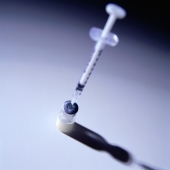
TUESDAY, May 4 (HealthDay News) — Preventing human papillomavirus (HPV) infection may be one way to slow the HIV/AIDS epidemic, according to a new study that found that HPV-positive men are at greater risk for HIV infection than those not infected with HPV.
Researchers looked at 2,168 men in Kenya, aged 18 to 24, who were uncircumcised, did not have HIV and were sexually active. The men were tested for HPV infections at the start of the study and over 24 months. Most of the men were followed-up for 42 months.
At the start of the study, about half (1,089) of the men were infected with HPV on the skin of their penis. After 42 months, 5.8 percent of these HPV-positive men were HIV positive, compared to 3.7 percent of men who didn’t have HPV.
The findings were released online April 23 in advance of publication in the June 1 print issue of the Journal of Infectious Diseases.
“Even when we controlled for circumcision status, herpes and other sexual and sociodemographic risk factors, men infected with HPV at the first study visit were at greater risk for HIV infection than men without HPV,” study lead author Jennifer S. Smith, a research associate professor of epidemiology in the Gillings School of Global Public Health at the University of North Carolina at Chapel Hill, said in a news release.
“If our findings are confirmed in other studies, then HPV prevention could become an effective tool for HIV prevention,” she added.
Smith noted that developing “a vaccine to prevent HIV is the greatest hope for curbing the world’s AIDS pandemic, but so far there is no such vaccine. However, there is a vaccine to prevent specific types of HPV infection, and vaccinating young men before they become sexually active could potentially help prevent the spread of HIV.”
More information
The U.S. Food and Drug Administration has more about HPV.

